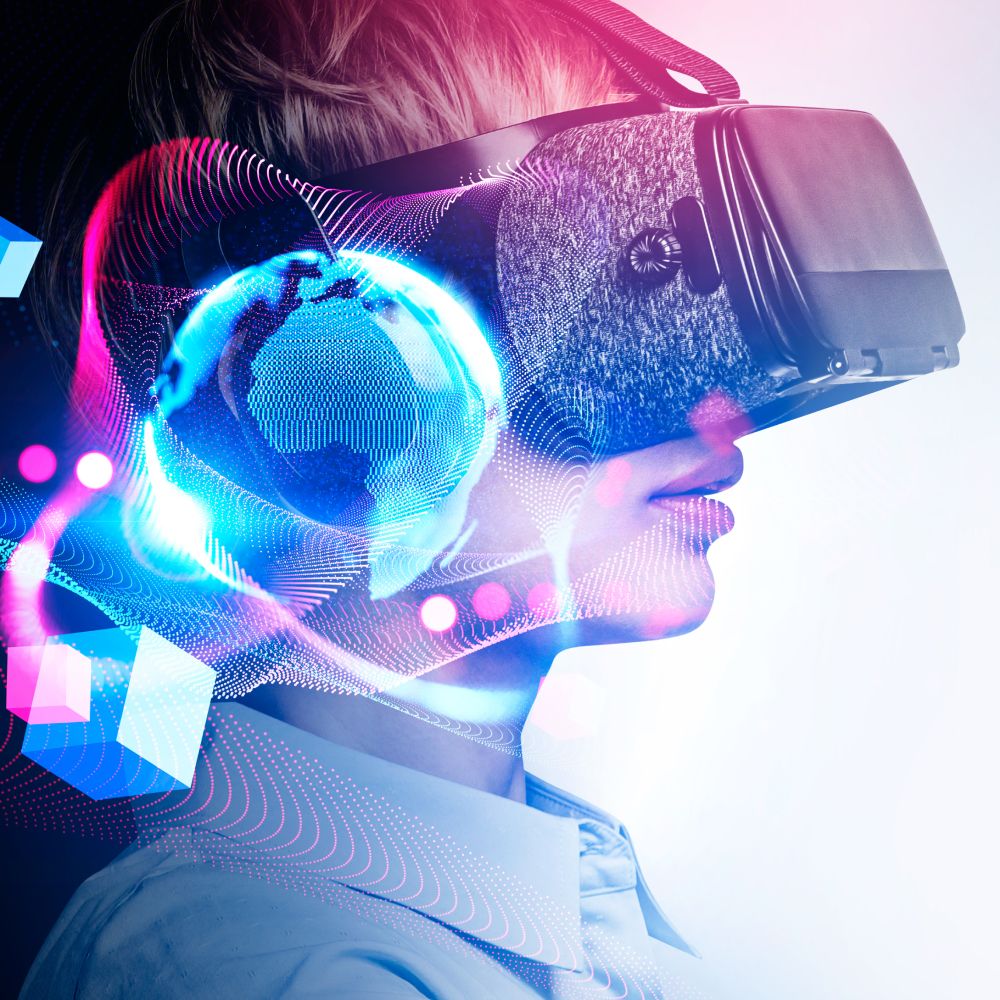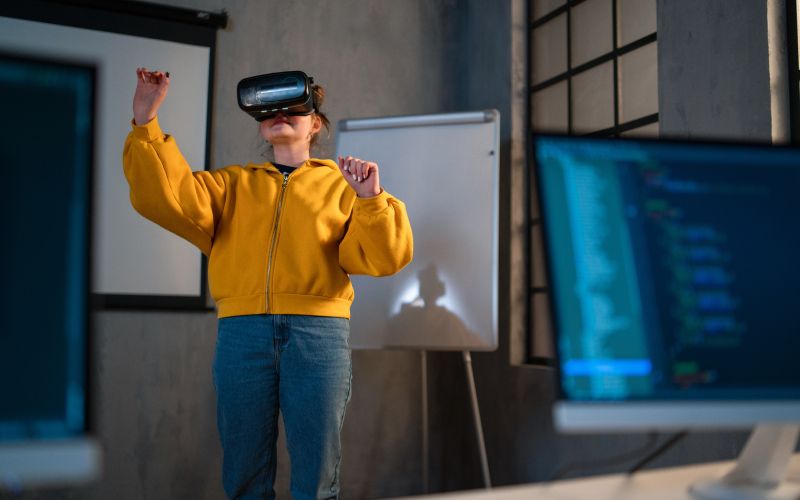Overview of the metaverse
The metaverse is a persistent shared virtual world that allows people to have immersive experiences. It is the result of several different technologies coming together, including virtual reality (VR), augmented reality (AR), internet of things (IoT), artificial intelligence (AI), non-fungible tokens (NFTs), ICT infrastructure and more.
In short, the metaverse enables people and businesses to augment or replicate in the virtual world certain activities that occur in the physical world: from training, commerce and gaming to social meetings and interactions. With significant investment pouring into this trend, several metaverses have come to market, providing users with limited functionalities or interactions specific to certain real-world activities.
The Role of VR and AR in the Metaverse.
Extended reality (XR) technologies like virtual reality (VR), augmented reality (AR) and mixed reality (MR) are a critical component of the metaverse. They function as the gateway to experience the immersive 3D worlds of the metaverse. The crucial feature of these technologies is to immerse the user in a digital environment (VR), or to blend the physical and digital worlds (in the case of AR and MR).
With virtual reality, users can immerse themselves into a virtual space via specific headsets like the Oculus Quest 2 or the HTC Vive. In the case of augmented reality and mixed reality, users can superimpose digital objects into the real-world via smartphones, tablets, or mixed reality wearable devices like Microsoft’s Hololens 2.
The Metaverse Experience is Not Limited to VR and AR.
Looking beyond virtual reality and augmented reality, the metaverse also offers non-immersive experiences, through PCs, smartphones, and tablets. In the gaming world, titles like Fornite and World of Warcraft are great examples of early stage metaverse concepts. In these games, users interact with persistent digital worlds where they can play, socialize, and purchase virtual objects. Today, this technology is evolving and crossing into the business world, where new, incredible opportunities are arising for technology-savvy organizations.
Examples of Metaverse Activities
The metaverse unlocks great opportunities for businesses who want to embrace this technology revolution. Across industries, organizations are entering these new virtual worlds where they can extend their real-world activities and create completely new business models.
Beyond social media and gaming, businesses are revolutionizing key activities and workflows across several experiences, including:
Marketing and Retail
From virtual try-ons to furniture, the metaverse can have significant implications for online commerce. Shopping centers, clothing and shoes stores are already becoming reality inside the first examples of the metaverse.
Gaming / Entertainment
The metaverse concept has been intertwined with the gaming world since its beginning. Virtual reality features for this specific niche are constantly evolving, delivering extremely immersive gaming experiences. This level of interactivity and immersivity could also cross the film and advertising worlds soon.
Employee Training
Virtual training is already a reality for businesses today. Employees can train and develop their skills in virtual worlds, where no actual resources are being utilized, and, most importantly, there is no real exposure to dangerous situations.
Education
The metaverse can provide a rich library for education content. Students can learn immersed in a virtual space, visiting historically accurate places and moments in time.
Other areas of interest within the metaverse are:
- Purchasing of virtual clothing and accessories for online avatars.
- Purchasing of virtual lands and homes.
- Purchasing virtual art like NFTs.
- Enjoying social experiences and interactions.
To make the metaverse truly immersive, users must adopt specific hardware and wearable devices: from PCs with solid processing power to virtual reality headsets, gloves and more.
Takeaway
As investment in the metaverse keeps accelerating, businesses can expand their business models inside of the virtual world, opening amazing opportunities for growth.
When investing in metaverse-specific initiatives, businesses and organizations must choose the right partner that has combinatorial expertise across technologies, industries, and geographies, to avoid risks associated with this nascent technology trend.






